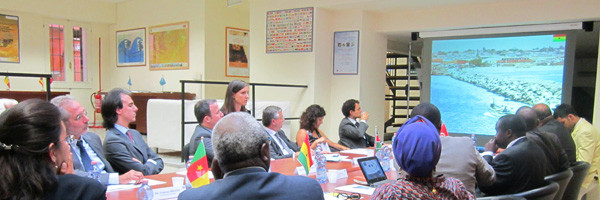Round Table on Fishery Sector

Your Excellencies & Honorable Guests,
It is an honor and a privilege for me to be able to introduce this Round Table on the fishery sector. As we begin our discussion, I would like to welcome the delegations from the African countries, who will have the chance today to inform us about the current situation and opportunities of their countries’ fishery sectors.
We also have the privilege to welcome some of the most important Italian stakeholders who will present their cutting-edge structures and capabilities.
Today we have the opportunity to become familiar with the fisheries development needs of some developing countries, and Italian companies and institutions will present their technological and capacity-building techniques. I would like to point out that Italy is a reference point not only for the Mediterranean area, but also for Sub-Saharan Africa.
This meeting is, therefore, aimed at supporting the establishment of common initiatives and specific cooperation opportunities, to be implemented in the next months.
UNIDO ITPO Italy has years of experience in the agro-industry sector and supports, through its initiatives, the development of the entire supply chain of the fishery sector – a sector which is crucial to local economies of most of the African countries.
The office operates to strengthen relationships between business communities of the African continent and Italian entrepreneurs in order to foster direct investments and technology transfer. These relationships are important for the expansion of the entire supply chain of the fish industry in developing countries.
Sustainable development should also shape on the “blue economy” principles, taking into account the safeguarding of marine resources through rational and environmentally sustainable fishing.
As previously mentioned, the common strategy aims at overcoming the old model of exploitation of sea resources, based on the maximization of quantity. It also seeks a development model, which takes into account the quality and the economic value of the catch and a reduced impact of fishing on resources and the environment.
The initiatives presented at this event have to be implemented in development strategies for the fishery supply of developing countries on a world scale, especially regarding areas such as product processing and conservation.
Before starting the session, please allow me to share with you the ITPO success cases in the fishery sector that have already been implemented in some countries.

